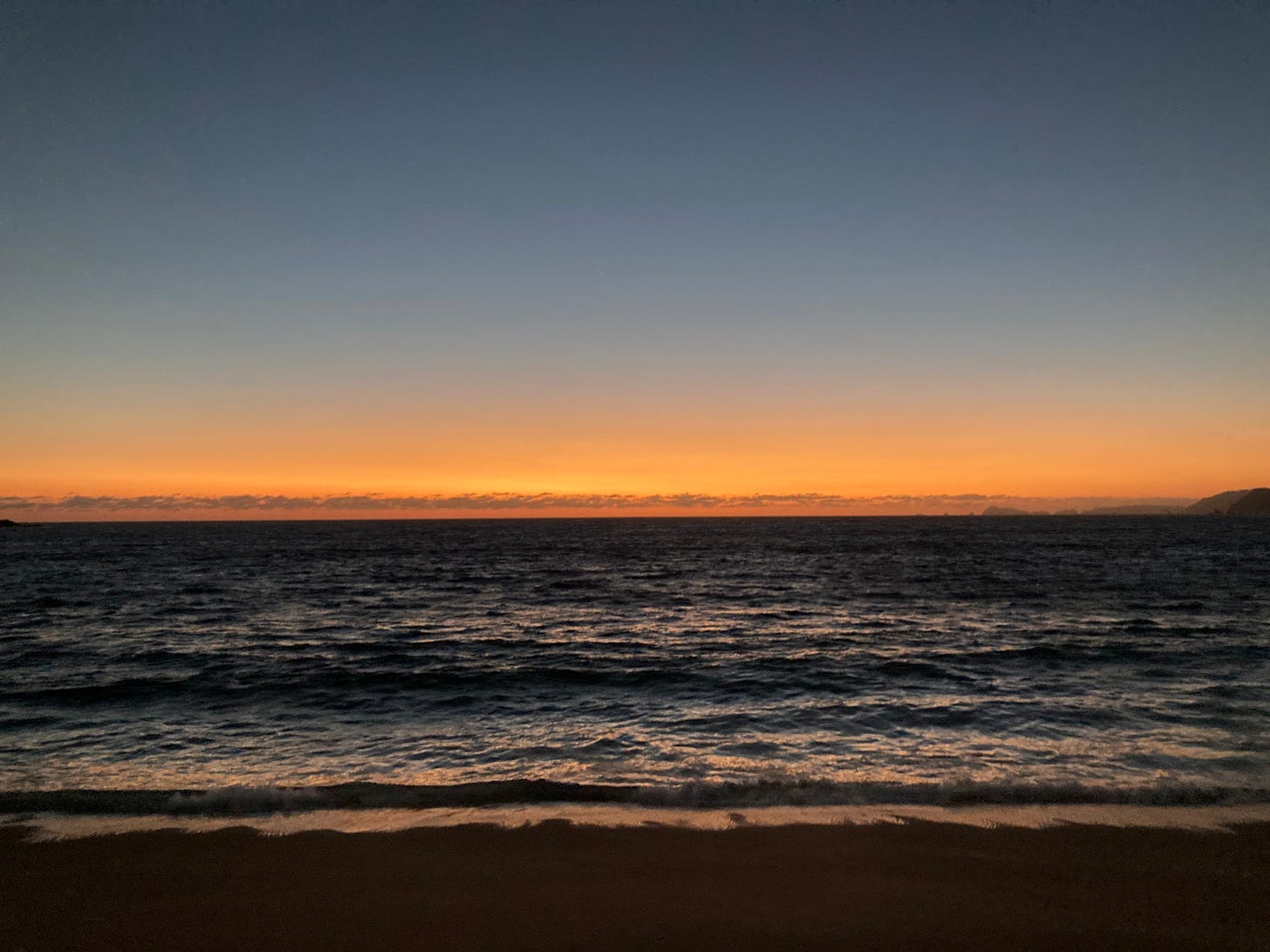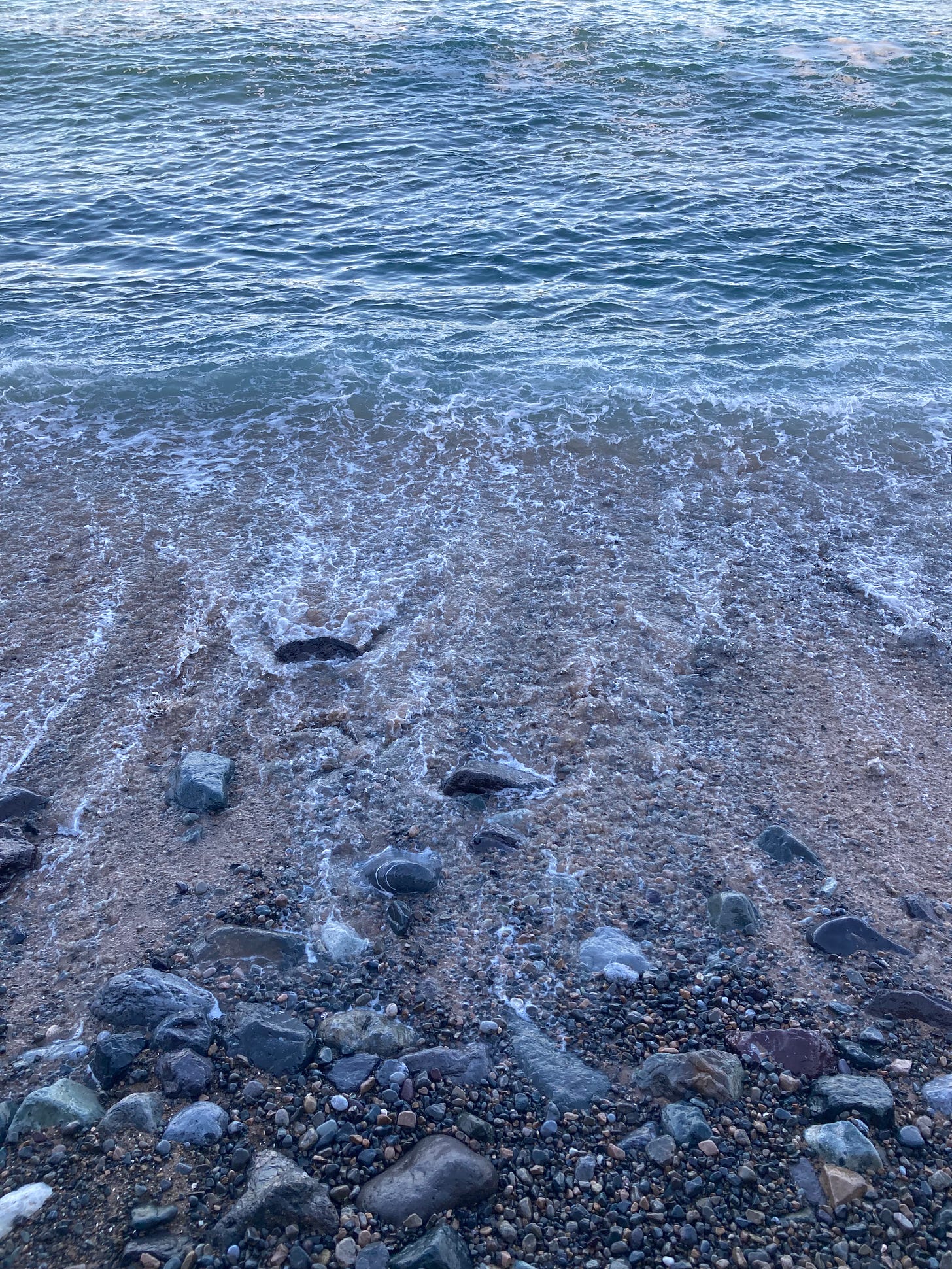Less Striving For More. Greater Well-being.
In this issue:
· Insights Into Practices
· What I’m Reading
· Half-day retreat
Insights Into Practices: Beware of the Jevons Paradox
The Jevons Paradox is named for the nineteenth-century English economist William Stanley Jevons. He noticed that as steam engines, powered by coal, became ever more efficient, Britain’s appetite for coal increased rather than decreased.
The paradox still exists today. As new technology is developed that improves energy efficiency—such as in lighting, refrigeration, automobiles, and so on—the expected energy savings isn’t being realized because people continue to use more—more lights, more refrigerators, more cars.
I love paradoxes, and this is a really interesting and useful one. I think this same principle applies to our well-being practices. Today, there are more ways than ever to practice well-being: meditation, mindfulness, exercise, yoga, sleep strategies, and well-being apps, podcasts, books, and talks. Potentially, all are useful and important and can help produce better mental and emotional health. But are they?
The human pattern of always seeking “more” can undermine the benefits of these well-intended activities. Our quest for greater well-being can become just another item (or many items) on our to-do list. Ironically, paradoxically—just as new energy technologies are not resulting in a decrease in climate change—pursuing ever-more well-being activities can lead us to feel busier, more stressed, and more anxious.
The problem isn’t technology. It isn’t having choice and many options. The problem is us. It’s our dissatisfaction with what we have and our desire for more. It’s a mindset of scarcity, and a belief that something is lacking. Consider our phones. They are tremendously useful. We believe we can’t live without them. But checking our phone from the moment we get up and hundreds of times each day is not so useful.
The practice is to shift from a mindset of scarcity to a mindset of enough. From this place, we can make better and healthier choices.

(Sunset, Jalisco Mexico)
The challenge and opportunity here is to become more aware of our desire for more and to transform our attitude to create more space in our lives. What might that look and feel like? It might mean doing less, or focusing on fewer activities that focus on well-being so we get more out of them. But whatever we do, it means engaging in these activities with an attitude of acceptance and satisfaction, aligning with an approach that whatever we do is enough.
Shunryu Suzuki put this a different way: “Our effort in our practice should be directed from achievement to nonachievement.” Yes, this is paradoxical, but it’s a paradox we can learn from. With mindfulness, the best achievement is releasing the need to achieve.
I also discuss this dynamic in my book Less: Accomplishing More by Doing Less. Here is an excerpt:
Our daily incessant busyness—too much to do and not enough time; the pressure to produce and tick off items on our to-do list by each day’s end—seems to decide the direction and quality of our existence for us. But if we approach our days in a different way, we can consciously change this out-of-control pattern. It only requires the courage to do less. This may sound easy, but doing less can actually be very hard. Too often we mistakenly believe that doing less makes us lazy and results in a lack of productivity. Instead, doing less helps us savor what we do accomplish. We learn to do less of what is extraneous, and engage in fewer self-defeating behaviors, so we craft a productive life that we truly feel good about.

Just doing less for its own sake can be simple, startling, and transformative. Imagine having a real and unhurried conversation in the midst of an unrelenting workday with someone you care about. Imagine completing one discrete task at a time and feeling calm and happy about it.
Every life has great meaning, but the meaning of our own can often be obscured by the fog of constant activity and plain bad habits. Recognize and change these, and we can again savor deeply the ways we contribute to the workplace, enjoy the sweetness of our lives, and share openly and generously with the ones we love. Less busyness leads to appreciating the sacredness of life. Doing less leads to more love, more effectiveness and internal calmness, and a greater ability to accomplish more of what matters most — to us, and by extension to others and the world.
What I’m Reading
The Invention of Nature, Alexander Von Humboldt’s New World, by Andrea Wulf – This is one of those books I’m now reading a second time. Humboldt was the most famous scientist and explorer of his time, 1769 – 1859. I was enthralled by his daring expeditions, discoveries, and worldview.
Same As Ever, A Guide To What Never Changes, by Morgan Housel – Great stories and lessons on story-telling, and a surprising and useful way of looking at our ourselves and the world, through the lens of what doesn’t change.
April 7th, Sunday, In person (Mill Valley, CA) and online. 9:00 a.m. – 12:30 p.m.
A half day of meditation, walking, reflecting, and connecting.
